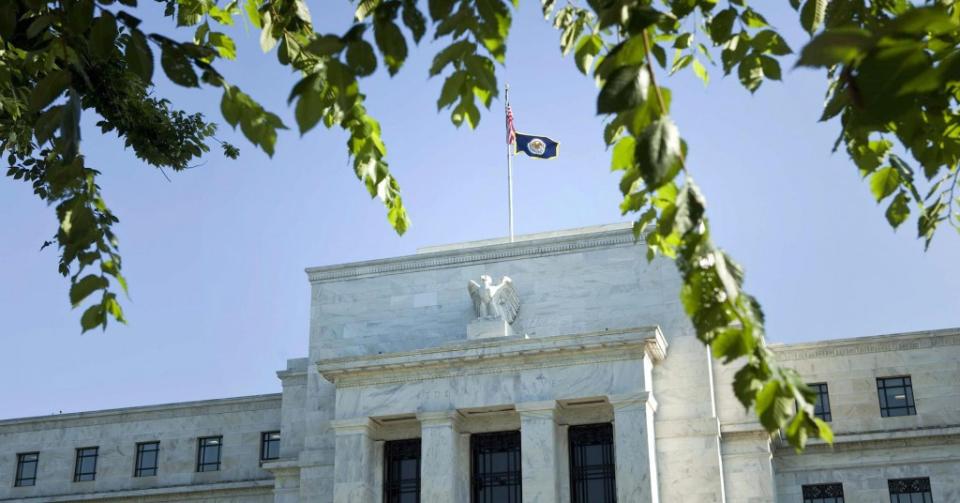Dr Chan: “Black Swans” May Not Even Shock the Market as Much as Short-selling Firms Do
On 14 June 2017, the US Federal Reserve (Fed) announced its decision to hike federal funds rate by another 25 basis points, making the current Fed funds rate 1.25 percent. Despite it being a move that was largely within market expectation, US stocks showed a lack of direction during early trading. But the Dow eventually managed to climb 0.22 percent before the close.
On the following trading day, the Dow lost some ground and fell by an insignificant 0.07 percent, but by the third trading day following the news, the Dow rose to a new record high.
Positive market sentiment despite rate hike
The muted impact of the Fed rate hike on the stock market suggested that investors are still confident that the Fed’s decision to hike rates would add little pressure to corporate earnings.
Improved sentiments were also seen in our local stock market, as the Straits Times Index rebounded to close near the 52-week high on 19 June. Hong Kong’s Hang Seng Index recorded an even stronger rebound with some stocks breaking new highs.
Theoretically, higher interest rates mean higher finance expenses which would put pressure on corporate profitability and hence stock valuations. Thus if investors find that existing interest rates still remain “low” and would not really erode corporate earnings, then the impact on the stock market should be limited. In reality though, what matters more is the guidance provided by the Fed with regards to future monetary policy.
In the past, the Fed had tended not to provide guidance on future monetary policies and that often left market participants shrouded in a cloud of uncertainty. But that has changed with the Fed publicly announcing their guidance, and on 14 June 2017, the Fed guided to one more rate hike in 2017 and three more in 2018.
Market’s reaction to the latest guidance was mixed: Some now expect the Fed to raise rates this coming December, while others had hoped that interest rates be left untouched for the rest of the year.
Nonetheless, most market watchers reacted positively to the Fed’s guidance and investors’ uneasy sentiments have subsided. Apart from hiking interest rates, the Fed will also be embarking on winding down its balance sheet next year.
What that means
The process of “deleveraging” is simply to allow Federal bonds and mortgage-backed securities to mature and roll off the Fed’s books while ceasing the current practice of reinvestment. This process is the opposite of quantitative easing and is a more direct method to tighten money supply than rate hikes.
Back then, to save its economy from the sub-prime crisis, the Fed embarked on quantitative easing on an unprecedented scale. Conversely, this time round, the Fed will embark on an unprecedented quantitative tightening process. How it pans out would require more definitive guidance from the Fed, but on a side note, some analysts have already devised econometric models to estimate the impact on prevailing interest rates.
For banks, higher interest rates will expand the interest rate-spread for their loan assets. In general, in a higher interest rate environment, banks normally raise loan rates first before raising deposit rates. Singapore banks would lag behind its American counterparts but once they follow suit, local bank stocks should also benefit.
In any case, the market’s focus on interest rates has diminished in the short-term and the attention has re-pivoted to Trump’s tax reform and healthcare bill.
“Black swan events” sending market to new highs instead
8 June 2017, also dubbed as the “Super Thursday” by the media, was deemed a black swan event. Speculators were expecting the US stock market to plunge, but instead, US stocks rose to a new high!
From last year’s Brexit to Trump’s unexpected victory in the US Presidential election, the market has always ascribed unforeseen episodes as black swan events. But it is as if “black” swans had turned “white”, as the US market continued to break new high!
What is this so-called “Super Thursday” then? Actually, it was a coincidence of risk events occurring on the same day whereby former Federal Bureau of Investigation Director James Comey’s testimony against Trump could lead to the latter’s impeachment. In the meantime, a freak result arising from the UK general election could all conspire to plunge the stock markets.
Prior to the UK general election, predictions that the Conservative Party would lose more seats led to a stalemate where no outright majority party won and hence resulted in a “hung parliament”. Conservative Party leader Theresa May’s call for an early election rocked the boat, leading to political instability, which could potentially result in the depreciation of the Pound.
Why did Comey’s testimony fail to negatively impact the US stock market? This is because “black swan” events were merely narratives of the media.
But investors knew better that Comey’s testimony have little chance of forcing Trump to step down and the media has exaggerated its impact. Everyone also knew that the US media has been constantly attacking Trump. As a result, US stocks continued to rally before and during the day when Comey testified before the Congress.
As for UK’s election, it was of less importance since Brexit has become a matter of reality regardless of who leads the UK on the negotiating table. Therefore, stock markets outside of the UK should see limited impact.
The “sneaky” tactics of short-selling firms
Lately, a number of Hong Kong stocks are being mauled by short-selling firms. To increase selling momentum, these short-selling firms would publicly announce their moves in order to fuel negative sentiments. As a result, investors would rush out of the market in droves before the short-selling companies announce their next target company.
Short-selling firms would achieve their objectives methodically. They would first identify and build a case around questionable companies with “inflated” earnings and question their ability to finance debts, or allege that the companies falsify information and deceive investors.
Once they have collected sufficient “evidence”, short-selling firms would short-sell the stocks of such companies and publicly release their findings to drive down the stock prices further. Ultimately, they would cash in their positions and make a profit.
Over the past few years, short-selling firms have displayed an impressive track record of causing the stock prices of targeted companies to plummet. The dramatic fall of stock prices could also be attributed to institutions and massive amount of retail investors participating in the short-sell.
However, it is considered illegal for such short-selling firms to enter an enormous selling position and manipulate the market. Short-selling firms have always touted themselves as white knights, playing vigilantes in the stock market and claiming that their mission is to warn investors against “shady” companies.
But as we know, in reality, their true objective is nothing but to make windfall profits by short-selling stocks. Ironically, faithful retail investors are often made the victims in their grand scheme of things, contrary to the “values” that these short-selling firms publicly preach.
Recall the Asian financial crisis of 1997 to 1998 when these “financial market crocodiles” first caused the collapse in sovereign currencies before the precipitous fall of the Asian stock market?
This time, after failing in their attack against the Hong Kong dollar, these “crocodiles” are now moving on to the stock market. In the end, Hong Kong regulators are forced to give these financial predators a tight slap, much to the joy of cheering investors.

 Yahoo Finance
Yahoo Finance 



